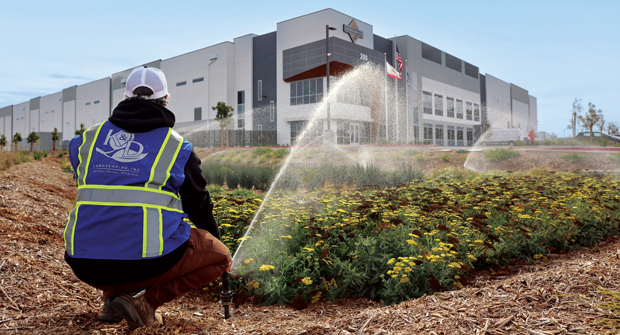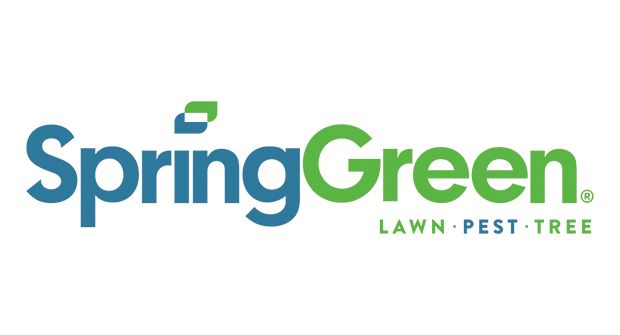The 2025 edition of the LM150 — the magazine’s list of the top 150 revenue-generating companies in the business — painted a rosy picture of the overall health and relative strength of the landscape and lawn care industry.
Revenues of the companies that made this year’s list totaled more than $21 billion, the first time that figure had exceeded the $20 billion threshold. It was the 11th consecutive year that total revenue increased over the year before, and it was the third year running that those increases were in the double digits (coincidentally, all three years increased 14 percent over the year prior).
Just to earn a spot on the 2025 LM150 was quite an accomplishment — the company at No. 150 this year, the Greener Group from Lowell, Mass., reported annual revenue of just over $20 million. Five years ago, the benchmark to make the list was a little more than $12 million; 10 years ago, that number was $7.7 million.
The good vibes and stories of impressive growth aren’t limited to the companies that clear that high bar, though. Many landscaping and lawn care operations that submitted data for this year’s LM150 program or that came to the magazine’s attention through other means enjoyed banner years in 2024, with double-digit (or more) year-over-year growth and future trajectories that are making them real players in the industry.
To shine a spotlight on some of these up-and-coming companies, we’re introducing the magazine’s newest feature — LM’s Rising Stars. This annual collection will feature some of the industry’s fastest-growing companies that largely fall outside of that year’s LM150 rankings, showcasing how they’ve built their operations, the keys to their growth and why they’re on a path to becoming one of the business’s biggest revenue-generating companies.
Information for this feature was submitted to LM either specifically for this story or as a part of the LM150 application process. Submissions for both were solicited on the magazine’s website, LandscapeManagement.net, via email and through notices on social media.
North Point Outdoors
Derry, N.H.
Dave Fairburn always hoped his career would get off to a flying start. He just never imagined those professional pursuits and accomplishments would occur in the landscaping industry.
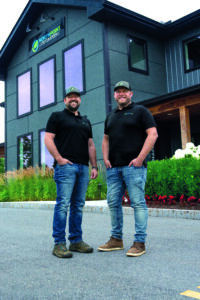
The CEO at North Point Outdoors long dreamed of a career as a pilot, earning a bachelor’s degree in aviation from Daniel Webster College in 2009 and, later, his commercial pilot’s certificate. But just as he began to search for work in corporate aviation, the bottom of that market fell out, jobs became hard to come by, so with student loans coming due, he began exploring a Plan B.
“I always had an interest in landscaping and actually started an irrigation services company in high school with the goal of it being a summer job while I was in college,” Fairburn says. “When I was looking for a job as a pilot, I reached out to a customer that I was already working with on their irrigation and asked if I could take on a landscape contract. Surprisingly, they said ‘sure.’
“I didn’t even own a lawn mower at the time, and I really didn’t know what I was doing. But things took off from there.”
Did they ever. Not long after landing that first lawn maintenance client, Fairburn teamed up with lifelong friend Andrew Pelkey, now North Point’s chief operating officer, to merge his irrigation business with Pelkey’s landscaping company. Soon, that new company — what would become North Point — began adding more lawn maintenance clients, started dabbling in residential design-build projects, broke into commercial installations and, considering their location, jumped into snow removal during the winter months.
Before long, it was clear that both Fairburn and Pelkey had found their true calling.
“I never intended on owning a landscape company,” Fairburn acknowledges. “I was always trying to find a way to get back into flying, and to do that, I felt like I needed to convince other people to landscape for me. Inadvertently, I started to build a team of people, didn’t micromanage them and tried to empower their growth because I felt like it was a way for me to ultimately stop doing landscaping at some point.
“A few years in, I realized that the landscaping industry was actually pretty fun. I really enjoyed growing my team, taking young people and creating careers for them out of the green industry. That became my passion, and flying is now a thing I do for recreation. I think we’ve ended up in a better place than I would have ever hoped.”
North Point’s recent success certainly confirms that. In 2024, the company racked up revenue of nearly $19.5 million, which marked a 22-percent increase over 2023. Fairburn and team are hoping for similar growth this year that would put them among the elite earners nationwide in the landscaping and lawn care industries.
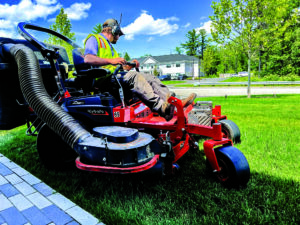
One of the keys to North Point’s growth trajectory, Fairburn says, was an eventual pivot away from the residential market and toward focusing on commercial maintenance and installations.
“We were doing such a wide range of things that I felt like it was drawing us pretty thin,” he says. “Think of it like a restaurant: If you go to a place with a huge menu, you wonder if they do any of those things well. When you go to a nice steak house with just nine or 10 things on the menu, you feel pretty good that they’re going to be great at those nine or 10 things. That was the philosophy we wanted to establish.”
Another key — perhaps the key, in Fairburn’s view — is the team at North Point and the culture that has been cultivated there.
“It’s been my mission to elevate the blue-collar workforce because I’ve seen how it can change lives,” he says. “I remember hiring this one young guy out of high school who had struggled in school, gotten into some trouble. He really took to the work, but his parents kept asking him when he was going to get a ‘real job.’
“When I heard that, it put a chip on my shoulder because this is a real job. This is a job that can give you a life that a lot of people never dreamed possible. We focus on giving people the skills and the tools to succeed, put our trust in them and make sure they know how crucial they are to our collective success. None of what we do is about winning awards or anything like that. It’s been about the people, and that’s how we measure success.”
That passion for people is so deeply embedded in everything the company does that Fairburn and Pelkey ran point on the creation of CrewHero (crewhero.app), a proprietary software solution that focuses on frontline workers in the landscaping industry.
“We had a powerful CRM (customer relationship manager), but every morning still felt like chaos. We were using whiteboards, magnets, and group texts to get everyone out the door. It was 2024, and we knew there had to be a better way,” Fairburn says. “So, we built CrewHero to supercharge our CRM and handle the coordination, communication, asset management and maintenance and to support the culture of the frontline team. CrewHero starts before our CRM even wakes up, connecting people and assets before they leave their home.”
K&D Landscaping
Watsonville, Calif.
Justin White has been a part of the landscape industry for most of his life. His father, Kendel, started in the business in 1986 in what, at the time, was a side gig to his full-time job as a chef. When lawn maintenance began earning the family more money than a day in the kitchen, he made landscaping his full-time job, Justin’s mother, Dawn, stepped in to help, and K&D Landscaping was born. Eventually, both Justin and his brother Shane — along with a host of other family members — were working in various roles at the business.
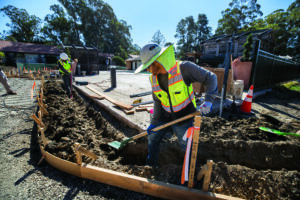
But it wasn’t until 2015 and an encounter with a popular business book that White began to focus on the company’s long-term potential.
“Like a lot of people, I read the book Good to Great by Jim Collins,” says White, who now serves as K&D’s CEO. “And after learning about all these amazing companies and entrepreneurs, I wondered, ‘Why not me? Why not K&D?’ At the same time, I was working with a business coach, Jonathan Goldhill, and the light bulb went off. I started to realize that we had the opportunity to build something amazing in the landscape industry.”
Based on recent performance, K&D is well on its way to doing just that. In 2024, the company had just over $20 million in total revenue, a 15 percent increase over the year before. With similar growth projected for this year and a team of 135 full-time employees dedicated to serving a blend of commercial, residential and government clients, today’s K&D is fully transformed from its humble beginnings with 15 employees and a few trucks focused largely on residential maintenance.
It was about the time White finished reading Good to Great that he transitioned from working in the field at K&D to an executive-level role with the company. Looking to build on the close-knit, family-focused culture that had developed there, the company set a goal to take itself from the $1 million revenue mark, which is where it was at the time, to $30 million by the year 2030.
Not long after Justin moved into the role of CEO in 2016, K&D’s hard work and focus started to bear fruit. It was a $5 million company by 2018 and surpassed the $10 million mark in 2020.

“That was a really exciting plateau for us to reach,” White says of the $10-million mark. “We did something that we didn’t know was possible in a really small market like Santa Cruz and Monterey Bay.”
Reaching that milestone also reset expectations for K&D, White says. As a result, the company made changes and improvements to the leadership team and its structure. It reorganized into construction and maintenance divisions. And it began embracing technology at a whole new level, most notably by bringing in Aspire Software to streamline operations.
“We got smart about our operations, smart about our money and smart about our crews and our people,” White says. “We got really clear on how we were going to get to that $30 million mark.”
As K&D continues to make steady progress toward that goal, White cites several moves that have been catalysts for growth for the company, including the introduction of a water management division in 2021, an increased interest in pursuing larger maintenance contracts (most notably with homeowner associations), and a “white-glove” residential design-build approach that keeps everything in-house.
“Those things are uncommon in our market and have allowed us to differentiate ourselves from the competition,” White says.
To date, all of K&D’s growth has been organic in nature, but that doesn’t mean White and the rest of the company’s leadership team aren’t interested in eventually considering mergers and acquisitions that make sense for the company. They’re just interested in approaching them in a uniquely K&D way.
“There’s obviously a lot of outside investment and outside money coming into the industry, which we encourage and we embrace,” White says. “But I think there is a demand and a desire from owners like my dad who want to sell their business … but to more of a homegrown platform. Someone like myself and others who were raised in the trades, grew up on the jobsite and can offer something different than traditional private equity.
“So, part of our vision is to partner with strategic investors within the landscape industry to fund our growth, fund acquisitions and provide a bit of a differentiation from your average private equity roll-up out there. More along the lines of what Richard Sperber and Frank Mariani have done but led by the next generation who are ready to start making waves and build something great.”
E&F Landscaping
Brandywine, Md.
Anthony Freni comes by his love of the landscaping industry honestly. In old photos that dot the shelves of his parents’ home, there are countless images of Freni sitting on tractors, on mowers or holding a variety of landscaping tools.
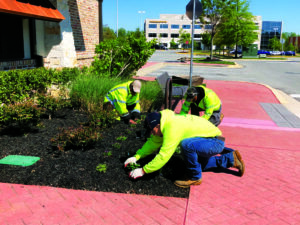
That’s because most of his childhood memories involve his parents — father Placido and mother Dia — and the business they started together, E&F Landscaping, just outside of Washington, D.C.
“I always had an interest in it, always wanted to be like my dad,” Freni says about his father, who originally started the company with another family member before his mother entered the picture to officially launch E&F. “I worked for the company in the summers, and when I found out that the University of Maryland had a landscape management major, I knew that was a perfect fit for me.”
And now, thanks to a dedication to diversification and a reliance on government contracts that were the foundation of the business in its early days, E&F Landscaping is a fast riser among companies that service the Mid-Atlantic region. In 2024, the company reported revenue of $12.5 million, which marked an 8 percent increase over the previous year’s totals. In 2025, Freni says E&F is expecting a similar pattern of growth for the company that employs 85 full-time.
“Innovation has been key for us. Looking at ways of doing things better and easier than we’ve done in the past has paid off,” Freni says. “We try to be proactive instead of reactive, to not shoot ourselves in the foot and do things the right way the first time. If you can accomplish that, you can come out ahead and be more profitable.”
Freni traces the beginnings of E&F’s upward mobility to a 2010 project that involved landscaping for a new section of highway in Maryland known as the Intercounty Connector, a 19-mile stretch that links I-95 and I-270 on the northern edges of Washington, D.C. E&F was one of three companies to be awarded contracts to work on the project — E&F’s section was the largest of the three — and the project helped establish the company’s credentials in the market.
It also spurred the company to pursue a path of diversification that Freni says remains a key to its ongoing success, beginning with the creation of a new part of the business, Brandywine Growers.
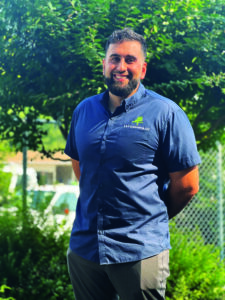
“We were very proud to be a part of that (the Intercounty Connector project), and we learned a lot,” he says. “One of those lessons was that we needed our own farm, a nursery that could be a production facility for us so we could grow our own plant materials. As that took off, we had a desire to take that wholesale, sell to other people, so that’s what we ultimately did.
“I took a break from the landscaping side to fully run that business (he returned to E&F full-time last April), start building up the infrastructure, hiring good people and building up our customer base. It’s really worked out great and has been a key to our growth.”
Freni says E&F has taken a similar approach as it has expanded the services it has offered to its client base, which remains largely focused on government and commercial contracts. It’s grown its design and construction capabilities and added irrigation services, for example, all the while making sure the company had the in-house expertise to make those endeavors successful.
“I have a philosophy that it takes a village, because no one can be in a million places at once and no one can take on every project by themselves,” Freni says. “I know what I don’t know, and I know that adding people with different perspectives, different experiences can only help us going forward. I think it creates a better culture and helps us serve clients better. At the end of the day, being successful at both of those things is a win for our company.”
